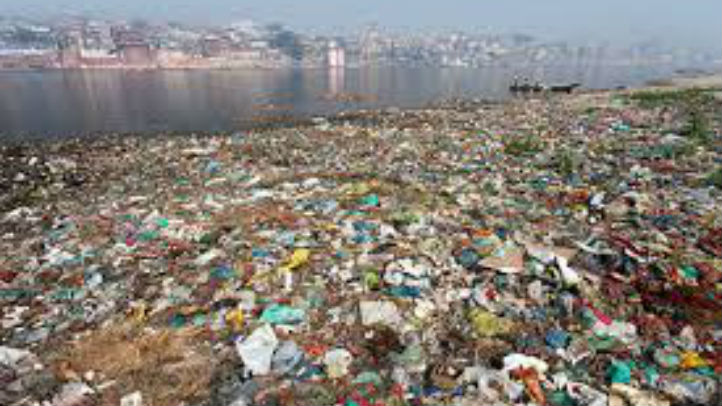Today we pay our hard earned money to buy LPG (say no to subsidy), food, water, land and even the air we breathe is to be filtered through masks for which we shell put more hard earned money. Long term impact on our health through our irresponsible lifestyle with no regard to environment is seen in higher medical bills and regular medications starting at younger ages and increasing impairment of organ impairment.
And what do we create? We create a lot of waste. So as human beings, we work hard, earn money and create waste. Not something you would like to speak about to your grandkids. We have always been prodigious creators of waste as can be seen by:
 The nomadic people simply left their rubbish and moved on – waste disposal was never a problem.
The nomadic people simply left their rubbish and moved on – waste disposal was never a problem.- When they started living in villages, disposed rubbish caused ground level to increase by nearly 3.5 feet/ century.
- Anti dumpling law was issued in Athens, Greece as early as 320 BC.
- Medieval people threw their rubbish into the streets, causing increase of rats, mice and disease.
- In London, Ravens and Kites were important scavengers among the rubbish heaps enough to be protected by the death penalty.
- During the 20th century many new and disposable goods and an unprecedented amount of plastic were invented and fewer people had opened fires so more rubbish was thrown away.
- Today, many plastic and electronic waste are disused and dumped.
 Household/ Industrial Waste – WHERE DOES IT GO?
Household/ Industrial Waste – WHERE DOES IT GO?
- Landfills
- Incineration
- Recycling
- Reduce and Reuse
Ways to pre-empt waste – Recycle, Reduce, Reuse
- Use a shopping bag and refuse unnecessary carrier bags
- Buy refills
- Buy fruits and vegetables loos, not pre-packed
- Buy reusable nappies
- Buy soft drinks in large bottles and use daily in smaller bottles
- Donate unwanted things to charity
- Choose durable products over disposable ones
In nature, there is no waste. The oxygen that the plants waste are necessary for animals whose carbon di oxide waste is in turn needed by plants. And there are many such examples. Nothing in nature is ever wasted. Responsible living being sensitive to environment involves managing our waste better. Everything that we pay; our hard earned money we consume is created by nature from waste. You can make
Meet our scientists, engineers, researchers and learn more about the simple and cost effective techniques to generate income and while being environmentally responsible.
You can earn from Rs.20,000 to Rs.20 lakhs annually and create income form the wealth hidden in waste.
Specifically, we are encouraging, (we can all participate)
- Waste collection and segregation at the point of production,
- Self sustaining or low cost alternatives to industry,
- Options to farmers and industries
| Organic Waste | Plastic waste | Others | |
| Source | 1. Agro-industries 2. Agriculture field waste 3. Homes |
1. Industries 2. Logistics 3. Homes |
1. Muncipal |
| Reduce | Use as needed. | Buy only when needed. | Landfills after removing all reusable and recyclable components |
| Reuse | 1. Plant & Animal feed | 1. Reuse plastic utensils | Metals |
| Recycle | 1. Bricquette making 2. Organic fertilizers |
1. Recycling industry a. employment generator b. furniture c. other products |
Segregate at source. |
APPLY BY CLICKING BELOW RELEVANT BUTTON
| Corporates | Student | Institution | NGO | |||

